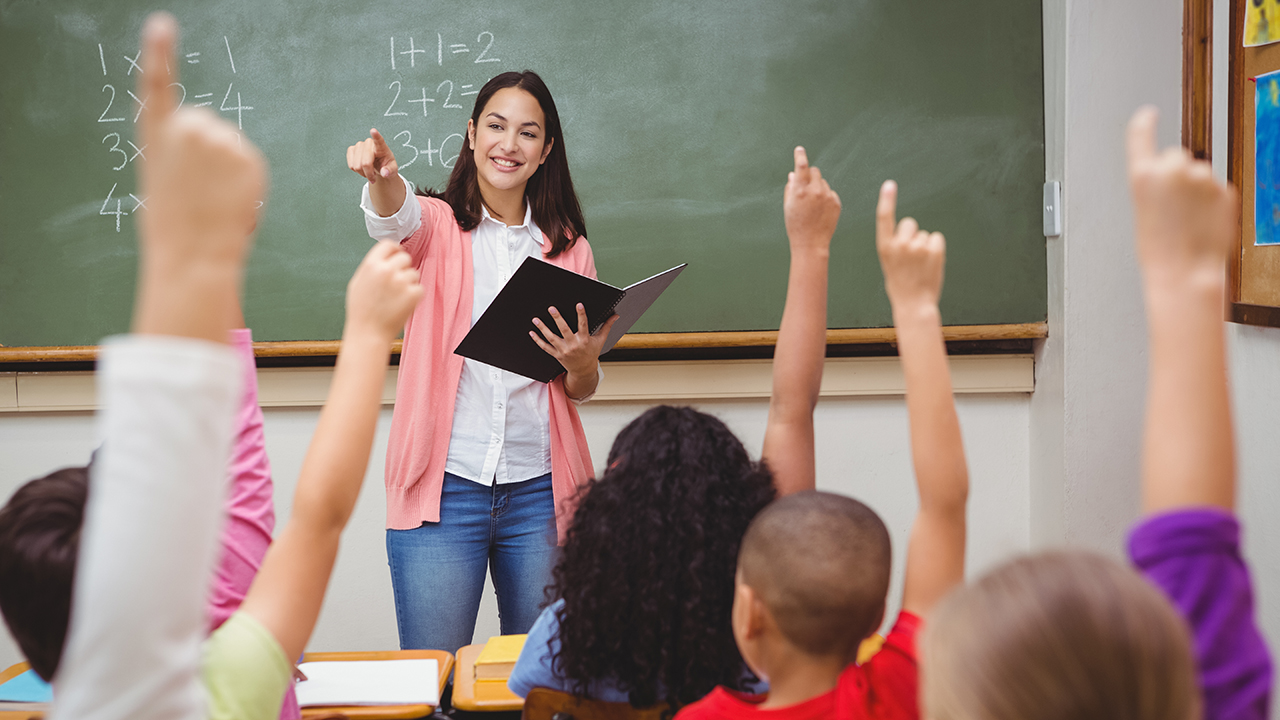
August 15, 2022
Contact: Brian Consiglio, 573-882-9144, consigliob@missouri.edu
Whenever Corey Webel introduces himself to someone as a math educator, he inevitably receives a passionate story or two about an experience — usually negative — someone had with a certain math class or topic at some point in their educational journey.
Now, as the director of the elementary math specialist program in the MU College of Education and Human Development, Webel is passionate about empowering Missouri teachers with strategies to help their students feel more confident and competent when learning various math topics.
The elementary math specialist program at MU, which Webel has led since 2015, is a two-year, online graduate certificate program and professional development opportunity designed for Missouri elementary school teachers to enhance their math education teaching skills. Entering its 10th year, the program recently received funding from the Missouri Department of Elementary and Secondary Education, which will fund 100 Missouri elementary school teachers to complete the MU program over the next two years.
The funding will also support similar cohorts of elementary school teachers at other institutions across the state, including University of Central Missouri, Northwest Missouri State University, Southeast Missouri State University, Missouri State University and University of Missouri-St. Louis.
“Math plays a powerful role in our lives, even if we don’t realize it all the time when we are young,” Webel said. “While many have had negative experiences with math in the past, I want to change the narrative by promoting more collaboration and creativity in the classroom so that students have more confidence and positive experiences with math.”
Webel collaborates with John Lannin, a professor of math education at MU who helped design and implement some of the program’s curriculum, which includes in-depth sections on algebraic reasoning, geometry and measurement, rational numbers and operations, probability and data analysis, as well as leadership classes.
“Elementary school teachers are typically generalists as they teach many different content areas, so a common challenge for them is having enough time dedicated to focus on a specific content area,” Lannin said. “Our goal is to provide teachers with specialized knowledge so that they can not only better support their own students but also become a resource if another teacher has a math question.”
Since 2013, 60 Missouri elementary school teachers have completed the program and 50 more plan to enroll this fall. Jenifer Smith, the elementary math coordinator for Columbia Public Schools, completed the program last summer and now uses what she learned to help both math coaches and elementary school teachers improve math instruction throughout the school district.
“Math should not just be about memorizing a bunch of steps to solve a problem. It’s about making sense of what is happening and creating a story to contextualize what it is that they are doing and solving,” Smith said. “Getting students to talk with each other and share what approaches they used to solve a problem a certain way is key. It is not enough to just know if they got the answer right, what is even more important is how they are thinking and ensuring they are making the right connections along the way.”
Webel added the program serves as a beneficial professional development opportunity for the teachers, who may go on to continue to teach at the elementary school level, become a district-level math coordinator like Smith, or serve as a math coach working with multiple teachers at a particular school.
“It is also a great mentorship opportunity for our MU undergraduate students majoring in elementary education who get placed in Columbia Public Schools for their field experience,” Webel said. “The opportunity to learn from someone who is not only a very competent math teacher but also a leader and mentor is incredibly valuable. It is rewarding to hear from MU students who often say they were inspired by the passion their host teacher showed toward the students to make math class a more fun and positive experience.”



